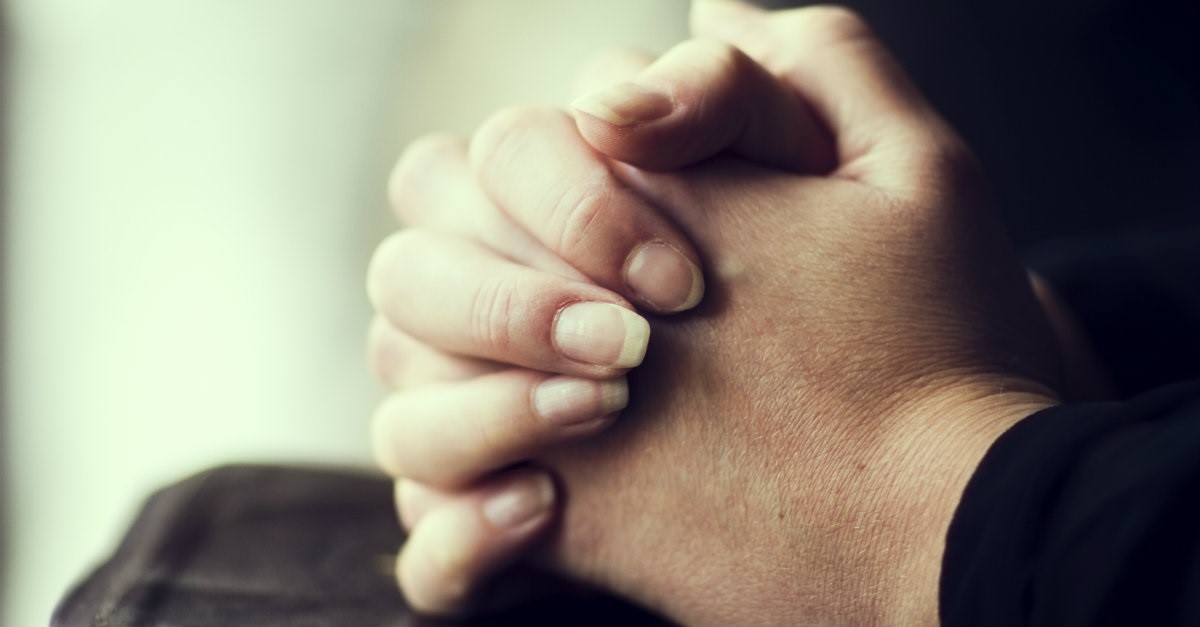
We can all agree that it is challenging to combine faith and science in a single sentence without opposition that comes between them. However, certain aspects of faith can be scientifically understood, especially when it comes to prayers.
Keep in mind that prayer is a form of futile exercise, a wishful technique in which we use hopeful words to handle a particular challenge in our lives, such as pain.
However, it is not something that brings us practical results as any scientific method should, but it has other benefits. Yet, the process of praying can lead to healing, which is a problematic approach when it comes to science.
Whether or not science can explain why a person feels healed after a daily prayer, it all depends on one’s belief.
The main goal is to determine and understand what happens in our bodies and brains while praying. It is the field called neurotheology, in which scientists want to differentiate and determine the effects of prayers of our brain biology.
According to most scientists from this particular field, the brains of people that spent hours in prayers are different from others.
According to Andrew Newberg, a neuroscientist, he has found that people who conduct regular daily prayers tend to go dark in the area related to sensory information.
It does not matter whether a divine power exists, but the neurophysiological effects of prayers and religious beliefs are facts that we can easily measure.
Different Religions Cause Different Effects on Our Bodies

It is an important distinction to add that different religions tend to cause different neurophysiological effects on our bodies.
The part of the brains that are connected with the attention, focus, planning skills, and future projections are closely connected with the one part of the brain, which is active during the prayer.
Both meditation and prayer tend to correlate when it comes to activities in the parietal lobe, which is responsible for spatial and temporal orientation.
However, Christians that are using words instead of relying on visualization techniques similar in meditation have shown increased activities in the sub-parietal lobe, which is language processing brain area.
On the other hand, other religious practices are causing different effects on the same brain areas. For instance, the latest studies have shown that Islamic prayer reduces the activity in frontal lobes and prefrontal cortex and activity in parietal lobes.
Remember that the prefrontal cortex is responsible for handling willful behavior, executive control as well as decision-making. Therefore, this activity decreases because Islamic prayers require relinquishing control during the process.
You should check here to learn everything about prayer in general.
Prayers as Reward-Processing
According to a few researchers, the reward-processing and pleasure brain areas were active during the prayers, which are the same centers that engage. At the same time, we gamble, listen to music, engage in sexual activities, and consume psychoactive substances.
At the same time, the participants stated that they felt physical warmth and peace after and throughout the prayer. When participants were asked to think about the savior, about being with each other for eternity, their brains physically responded as a result.
Old studies suggested that engaging in prayers could raise the levels of serotonin, which is responsible for happiness as well as endorphins, among others.
However, these neurotransmitters cause the same effects to the brain as prayers, which means that we can easily say that religion is the opium of the people, but not in a bad sense, of course.
Out of Body Experiences
The latest studies have shown that our brains tend to create both mystical and spiritual experiences. It happened due to brain imaging technologies that became more advanced, so we can easily detect the micro changes that are happening during a particular ritual.
Our bodily boundaries tend to change when the activity in the superior parietal cortex increases or decreases. One study of Vietnam veterans has shown that the ones that had prefrontal cortex injuries; they were more likely to experience out-of-body or mystical experiences.
Remember that these areas of our brains tend to control the sense of self concerning other things in the world. Therefore, out of body term creates the extended sensation of self and perception, which is similar to mystical perspectives back in the day.
Since the neurological roots of our mystical experiences can be traced by using the latest technologies, the question is whether we can create and simulate the experience of each individual.
During the ‘90s, Dr. Michael Persinger created a God Helmet. A device could stimulate various religious experiences by using magnetic fields to stimulate specific parts of temporoparietal lobes.
In this particular experiment, one percent of highly religious participants reported that they felt the presence of God while wearing a device. On the other hand, others felt some presence, but they did not call it a God, like religious ones.
The Future of Religion and Neurotheology
Today’s neuroscientists are trying to work as much as they can to figure out what is going on in the brain during the prayers. Even though we have mentioned above, some of the results are all just hypotheses, and we are scratching the surface.
Therefore, neurotheology can easily explore how spirituality and religion can affect both mental and physical health, significantly when it comes to practices and rituals such as prayers.
Apart from that, it can help in developing the therapeutic approaches with an idea to help people that are suffering from psychiatric and neurological conditions.
Remember that it can also provide us the answer to the nature of spirituality, consciousness, and reality in general. Check out this site: https://www.wikihow.com/Pray-as-a-Christian to learn more about praying.
Even though we wish to gain these answers, implementing daily prayer is one of the best ways to improve your wellbeing and reduce the chances of getting mental issues of modern ages.
Since the information age makes us skeptical about numerous things that we still cannot comprehend, the main goal is to obtain the ability to maintain happiness and a balanced quality of life.
It is as simple as that.

